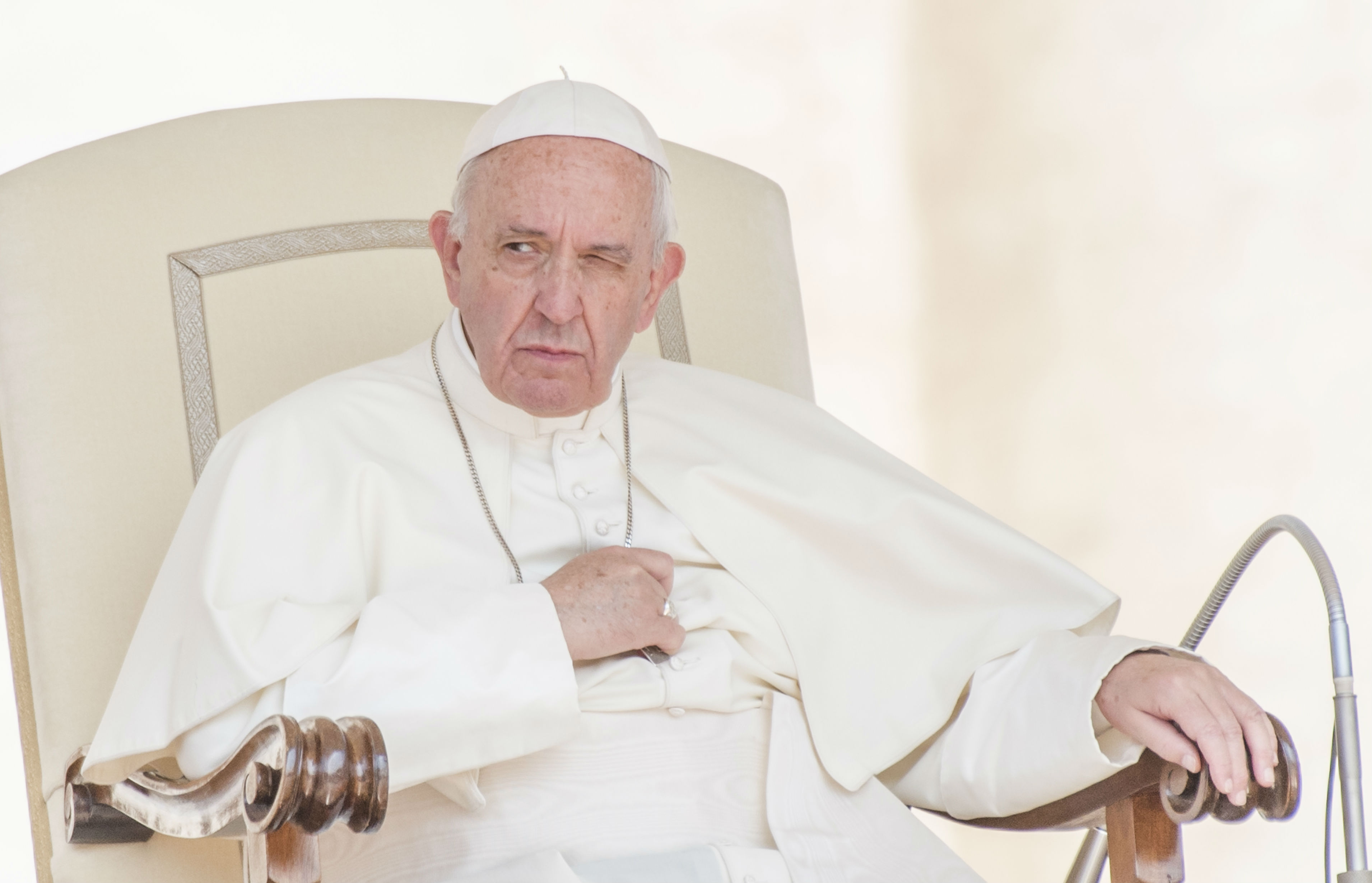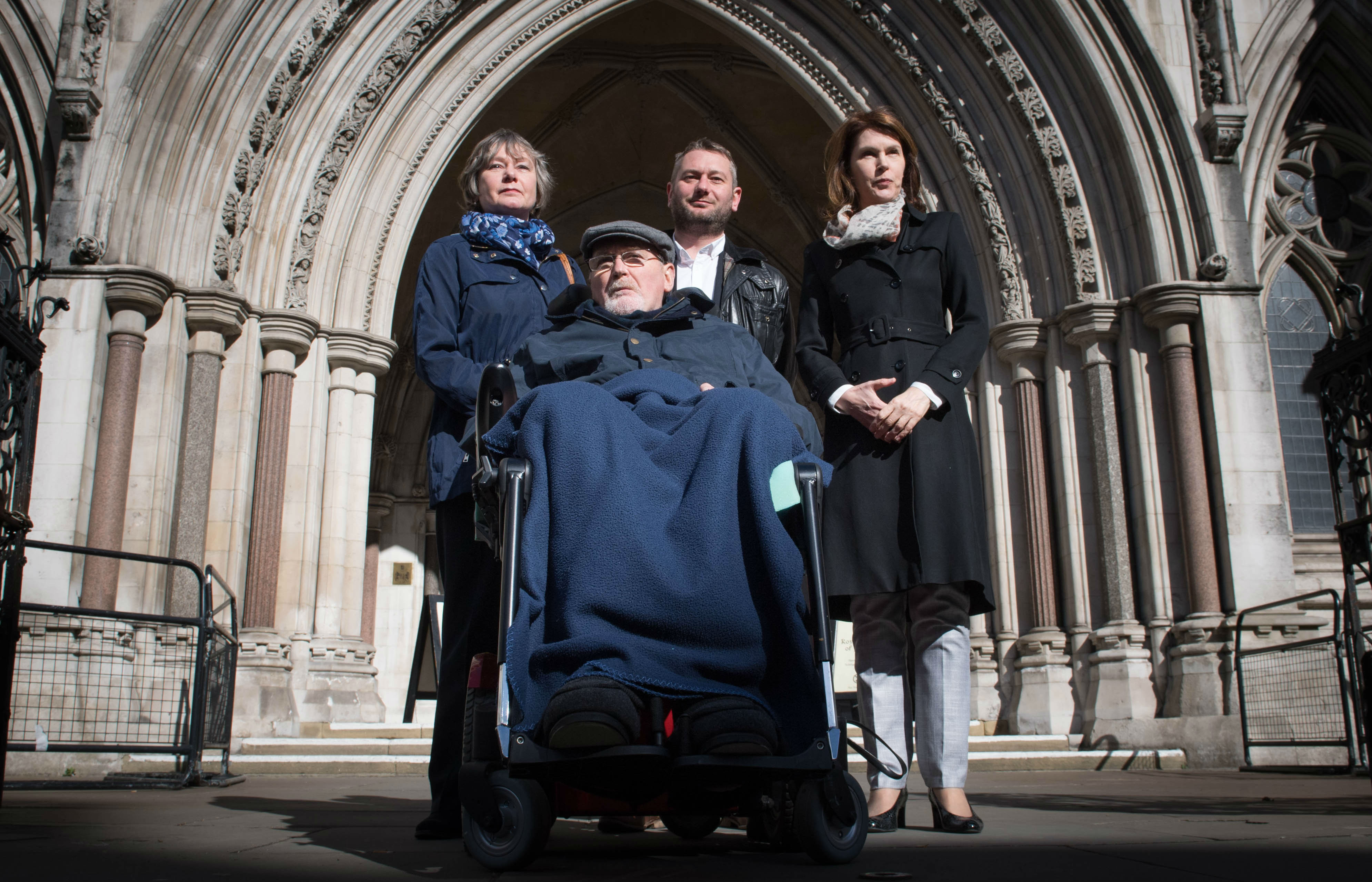A retired lecturer who is terminally ill and wants the right to die is challenging the law against assisted dying in the High Court in London in a week-long hearing beginning today (17 July).
Noel Conway, who is aged 67, has motor neurone disease and has been given less than 12 months to live. He wants a doctor to be allowed to prescribe a lethal dose to him in the UK when his health deteriorates further.
He is seeking a declaration that the Suicide Act 1961 is incompatible with European laws on the human right to dignity and personal autonomy and should be declared illegal.
The Suicide Act decriminalised prosecution of those who try and fail to kill themselves but also created a new offence of 'complicity in suicide', meaning that anyone who assists a suicide or suicide attempt faces up to 14 years in jail.
Conway, who is too ill to attend the hearing but will participate by video link on Wednesday, said: “I have brought this case to fight for choice and control at the end of life – for me and for all terminally ill people and their loved ones who are being failed by the current law. I know I am going to die anyway, but how and when should be up to me.”
Richard Gordon QC, who is representing Conway, told the Court today that people over 18, diagnosed with a terminal illness and given less than six months to live, who have made a voluntary, lucid decision to die and have the ability to undertake a final act, should be allowed medical assistance to carry out their wishes in the UK.
Currently, those wishing to end their lives say they have to travel to the Dignitas clinic in Switzerland. Conway and his supporters say the UK ban forces them to make that choice much earlier than should be the case.
Baroness Ilora Finlay, Co-Chair of think tank Living and Dying Well and Chair of the National Council for Palliative Care, has said she believes the law should remain as it is.
“I think that it’s incredibly serious for one person to be involved in the suicide of another,” she told BBC Radio 4’s Today programme, this morning.
Andrea Williams, chief executive of the Christian Legal Centre, warned that legalising assisted suicide could loosen protection for the “most vulnerable”.
"We have seen from other countries where assisted suicide and euthanasia have been legalised, that this has loosened vital protections for the most vulnerable in society. In these countries, people are being euthanised even for mental health conditions such as depression."
"This must serve as a warning to our nation to firmly resist these ongoing attempts to liberalise the law,” she added.
In 2015, the House of Commons overwhelmingly rejected a private member’s bill to introduce assisted dying.
After four hours of debate, Labour MP Rob Marris’ Assisted Dying Bill, based on Lord Falconer's Bill of 2014, was defeated at its second reading by 330 votes to 118.
PICTURE: Noel Conway, 67, outside The Royal Courts of Justice in London in March of this year with his wife Carol (left), stepson Terry McCusker (centre back) and Sarah Wootton, CEO of Dignity in Dying (right).



 Loading ...
Loading ...